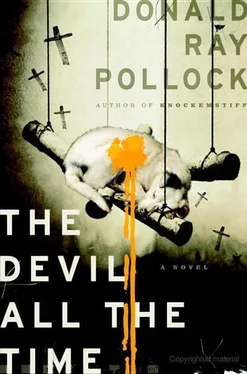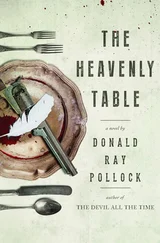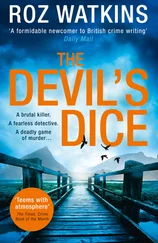BY THE TIME THEY LEFT THE SUNDOWNER, it was noon. Sandy had woken up at eleven, then spent an hour in the bathroom getting ready. She was only twenty-five, but her brown hair was already beginning to show traces of gray. Carl worried about her teeth, which had always been her best feature. They were stained an ugly yellow from all the cigarettes. He’d noticed, too, that her breath was bad all the time now, regardless of how many mints she consumed. Something was starting to rot inside her mouth, he was sure of it. Once they got back home, he needed to get her to a dentist. He hated to think of the expense, but a nice smile was an important part of his photographs, providing a needed contrast to all the pain and suffering. Though he’d tried time and time again, Carl had yet to get one of the models to fake even a little smirk once he took the gun out and started on them. “Girl, I know sometimes it’s hard, but I need you to look happy if these are gonna turn out good,” he told Sandy, whenever he’d done something to one of the men that upset her. “Just think of that Mona Lisa picture. Pretend you’re her hanging up on the wall in that museum.”
They hadn’t driven but a few miles when Sandy braked suddenly and pulled into a little diner called the Tiptop. It was shaped somewhat like a wigwam and painted different shades of red and green. The parking lot was nearly full. “What the hell are you doing?” Carl said.
Sandy shut off the engine, stepped out of the car, went around to the passenger’s side. “I ain’t drivin’ another mile until I get some real food,” she said. “I been eating nothing but candy for three days. Shit, my teeth are getting loose.”
“Jesus Christ, we just got on the road,” Carl said, as she turned and started walking toward the diner door. “Hold up,” he yelled. “I’m coming.”
After locking the car, he followed her inside and they found a booth near a window. The waitress brought two cups of coffee and a ragged menu spattered with ketchup. Sandy ordered French toast and Carl asked for a side of crisp bacon. She put her sunglasses on, watched a man in a stained apron try to install a new roll of paper in the cash register. The place reminded her of the Wooden Spoon. Carl looked around the crowded room, farmers and old people mostly, a couple of haggard salesmen studying a list of prospects. Then he noticed a young man, early twenties maybe, sitting at the counter eating a piece of lemon meringue pie. Sturdy build, thick, wavy hair. A backpack with a small American flag sewn on it leaned against the stool beside him.
“So?” Carl said, after the waitress brought the food. “You feeling any better today?” As he talked, he kept one bloodshot eye on the man at the counter, the other on their car.
Sandy swallowed and shook her head. She poured some more syrup on the French toast. “That’s something we need to talk about,” she said.
“What is it?” he asked, pulling the burnt rind off a slice of the bacon and sticking it in his mouth. Then he took a cigarette from her pack and rolled it between his fingers. He shoved what remained on his plate over to her.
She took a sip of her coffee, glanced at the table of people next to them. “It can wait,” she said.
The man at the counter stood up and handed the waitress some money. Then he slung the backpack over his shoulder with a weary groan and went out the door with a toothpick stuck in his mouth. Carl watched him go to the edge of the road and try to thumb a passing car. The car went on without stopping, and the man started walking west at a lazy pace. Carl turned to Sandy, nodded toward the window. “Yeah, I seen him,” she said. “Big deal. They’re all over the place. They’re like cockroaches.”
Carl watched the road for traffic while Sandy finished eating. He thought about his decision to head home today. The signs were so clear to him last night, but now he wasn’t so sure. One more model would jinx the three sixes, but they could drive for a week and not find another who looked like that boy. He knew better than to fuck with the signs, but then he recalled that seven was the number of their room last night. And not a single car had passed by since the boy left. He was out there right now, looking for a ride in the hot sun.
“Okay,” Sandy said, wiping her mouth with a paper napkin, “I can drive now.” She got up and reached for her purse. “Better not keep the fucker waiting.”
Part Three — Orphans and Ghosts
ARVIN WAS SENT TO LIVE WITH HIS GRANDMOTHER right after his father’s suicide, and though Emma made sure that he went to church with Lenora and her every Sunday, she never asked him to pray or sing or kneel at the altar. The welfare people from Ohio had told the old woman about the terrible summer the boy had endured while his mother was dying, and she decided not to push anything other than regular attendance on him. Knowing that Reverend Sykes was prone to be a little too zealous at times in his attempts at bringing hesitant newcomers into the fold, Emma had gone to him a couple of days after Arvin’s arrival and explained that her grandson would come into the faith his own way when he was ready. Hanging roadkill from crosses and pouring blood on logs had secretly impressed the old preacher — after all, weren’t all the famous Christians fanatical in their beliefs? — but he went ahead and agreed with Emma that maybe that wasn’t the best way to introduce a young person to the Lord. “I see what you’re getting at,” Sykes said. “No sense turning him into one of them Topperville nut jobs.” He was sitting on the church steps peeling a bruised yellow apple with a pocketknife. It was a sunny September morning. He wore his good suit coat over a pair of faded bib overalls and a white shirt starting to unravel around the collar. Lately, his chest had been hurting him, and Clifford Odell was supposed to give him a ride to a new doctor over in Lewisburg, but he hadn’t shown up yet. Sykes had overheard someone at Banner’s store say that the sawbones had gone to college for six years, and he was looking forward to meeting him. He figured a man with that much education could cure anything.
“What’s that supposed to mean, Albert?” Emma asked.
Sykes glanced up from the apple and saw the hard look the woman was giving him. It took him a moment to realize what he had said, and his wrinkled face flushed red with embarrassment. “I’m sorry, Emma,” he sputtered. “I wasn’t talking about Willard, no way. He was a good man. One of the best. Shoot, I still remember the day he got saved.”
“That’s all right,” she said. “No sense buttering up the dead, Albert. I know what my son was like. Just don’t go pestering his boy, that’s all I ask.”
LENORA, ON THE OTHER HAND, couldn’t seem to get enough of her religion. She carried a Bible with her everywhere she went, even to the outhouse, just like Helen had; and each morning, she got up before everyone else and prayed for an hour on her knees on the splintered wooden floor beside her and Emma’s bed. Although she had no memory of either of her parents, the girl directed most of the prayers that she let Emma hear on her murdered mother’s soul and most of her silent ones on some news of her missing father. The old woman had told her time and time again that it would be best to forget about Roy Laferty, but Lenora couldn’t help wondering about him. Nearly every night, she fell asleep with an image of him stepping up on the porch in a new black suit and making everything all right. It gave her a small comfort, and she allowed herself to hope that, with the Lord’s help, her father really would return someday if he was still alive. Several times a week, no matter what the weather, she visited the cemetery and read the Bible out loud, especially the Psalms, while seated on the ground next to her mother’s grave. Emma had once told her that the book of Songs was Helen’s favorite part of the Scriptures, and by the time she finished the sixth grade, Lenora knew them all by heart.
Читать дальше












